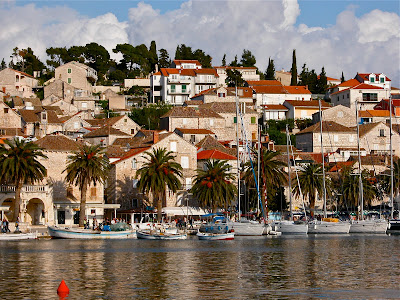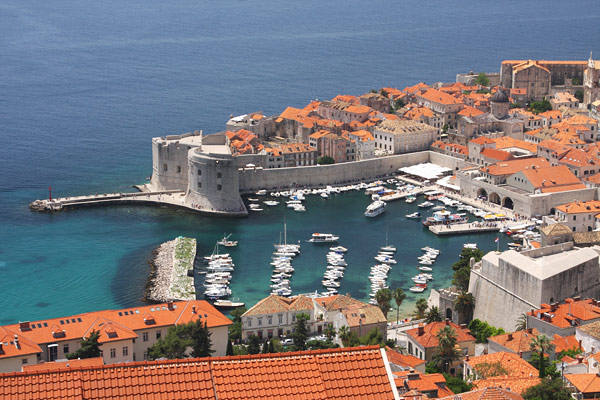I think it is worth bringing up The Dalmatian Coast again because it is such a beautiful place. I find Croatians are more friendly and honest. I remembered a saleslady panicked when I asked her about different prices on their similar clothing products. They were not trying to cheat but they made poor business people. Hopefully, it will stay that way.
They consider themselves different from the rest of the former Eastern bloc people. Why not, they have good manners and started one of the oldest pharmacy in the world. Zagreb is boring but the coast is not.
There is only a short section of the Croatian coast is given up to Bih (Bosnia) so that Bosnia has a sea outlet. (Forget about Bosnia. Of course, if you are sick of the Lebanese in OZ/NZ, Bosnians are the same dodgy people.)
Croatia- The Yachtsman’s Haven ........................................ ** It is a Hidden Gem, you have to visit the country to see for yourself **
Taken some notes from http://www.escapeartist.com/OREQ9/Living_In_Croatia.html
Croatia is a relatively small country, but it has a spectacular 6,000 km coastline on the Adriatic Sea with more than 1,100 islands, of which only 66 are inhabited. This coast is considered to be the most beautiful in Europe with innumerable bays, inlets, coves and beaches. There are also many historic places such as Pula, Split, Korcula, Hvar, Trogir, Dubrovnik. On the Adriatic coast alone there are four historic places which are listed as World Heritage sites by UNESCO.
Most islands receive more than 2,600 hours of sun a year.
...
However, Croatian tax laws offer unique advantages for persons who receive certain foreign income or a foreign pension. Croatia also offers important tax advantages to yacht owners. As these advantages are not well known, Croatia offers the interesting possibility of establishing tax-free residence in a high-tax country.
Croatia was the second largest state in the former Yugoslavia. When Croatia declared independence in 1991, a four-year war with Serbia followed. Although most of Croatia remained untouched by the war, this nevertheless distracted attention from the Croatia’s clear seas, over 1,000 islands, romantic fishing villages, beautiful beaches, vineyards, Roman remains and medieval towns. Croatia is now a sovereign state and in 1992 became a full member of the United Nations. Elections in January 2000 brought in a new free-market-oriented government determined to attract foreign investment. The political, social and economic situation is rapidly improving.
In addition to this, thanks to the fact that Croatia is not a member of the European Union (EU), foreign yachtsmen can avoid Value Added Tax (VAT) on the purchase price of their yachts if they are residents in Croatia, while staying at the most beautiful and cleanest coastline in Europe.
Some of the many advantages of Croatia include:
- Most beautiful coastline in Europe with unspoilt nature and rich culture.
- Residence permit easily available, also for yachtsmen.
- Certain income may be received 100% tax-free.
- Use of offshore structures is possible for tax planning and privacy.
- Croatian residence permit has no minimum stay requirement.
- Possible fiscal incentives for substantial investments.
- Residence and Personal Taxation.
Tax Residence
You are tax resident in Croatia based on physical presence if you stay for at least 183 days under circumstances that indicate your visit is not temporary. The 183-day visit may overlap calendar years.
Residence Permits for Yacht Owners
Foreign nationals who wish to stay longer than three months in Croatia must obtain a residence permit. To get a residence permit, it is sufficient to have a yacht moored in a Croatian marina or to rent or own an apartment. An application for residence in Croatia involves submitting various government forms and identification documents, including proof of sufficient funds, and requires a visit to Croatia followed by six to eight weeks processing time. The residence permit is valid for a maximum of one year and can be easily renewed.




